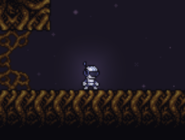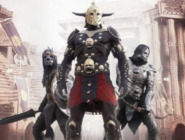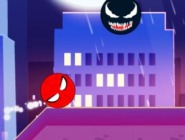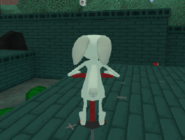Pineapple on Pizza
Advertisement
Advertisement
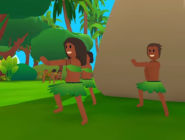
Pineapple on Pizza is a short first-person experience that drops players into a lively tropical island where the population never stops dancing. With no tutorial or dialogue, the game offers no context—just music, movement, and the freedom to explore. Every corner of the island is filled with synchronized celebration, making the world feel full, yet strangely unreachable. The player isn’t a participant, but an observer, invited to wander through a never-ending festivity that masks something more unsettling beneath the surface.
Exploration Without Explanation
The mechanics are minimal. You can walk, look around, and watch. Characters react only in rhythm, continuing their dance regardless of your presence. The island is carefully arranged, subtly leading you toward its central feature: a volcano. There are no barriers, no signs, and no instructions—just a growing curiosity about whether something more is hidden behind the cheerful display. The design encourages movement, not progression, as if the island is waiting for a choice to be made.
One Decision That Changes the World
The game’s tone shifts completely when the player decides to jump into the volcano. Without warning, music cuts off. Dancers freeze. The joy disappears, and silence takes its place. Nothing else changes visually, but the emotional weight is immediate. In a single moment, the festive world becomes still and lifeless, all caused by one action that seemed available but not necessary. The consequence feels heavy, yet unexplained.
Key features of the experience:
- A vibrant environment with no direct objectives
- One central action that transforms the tone
- Story told through space, sound, and contrast
- Minimal controls and no dialogue
- A complete experience in under 10 minutes
A Quiet Message Beneath the Celebration
Pineapple on Pizza doesn’t spell out its meaning. It leaves space for interpretation—about disruption, about agency, or about the fragile balance of a world in motion. Some players see it as a metaphor for interference, others as a reflection on how small actions carry unexpected consequences. The game’s strength lies in its restraint: it lets silence speak louder than explanation.
Through simple mechanics and strong contrast, Pineapple on Pizza delivers a short but thought-provoking experience. It invites players to look beyond the surface, to question their role in unfamiliar systems, and to sit with the weight of change when it can’t be undone.
Related games
Comments


